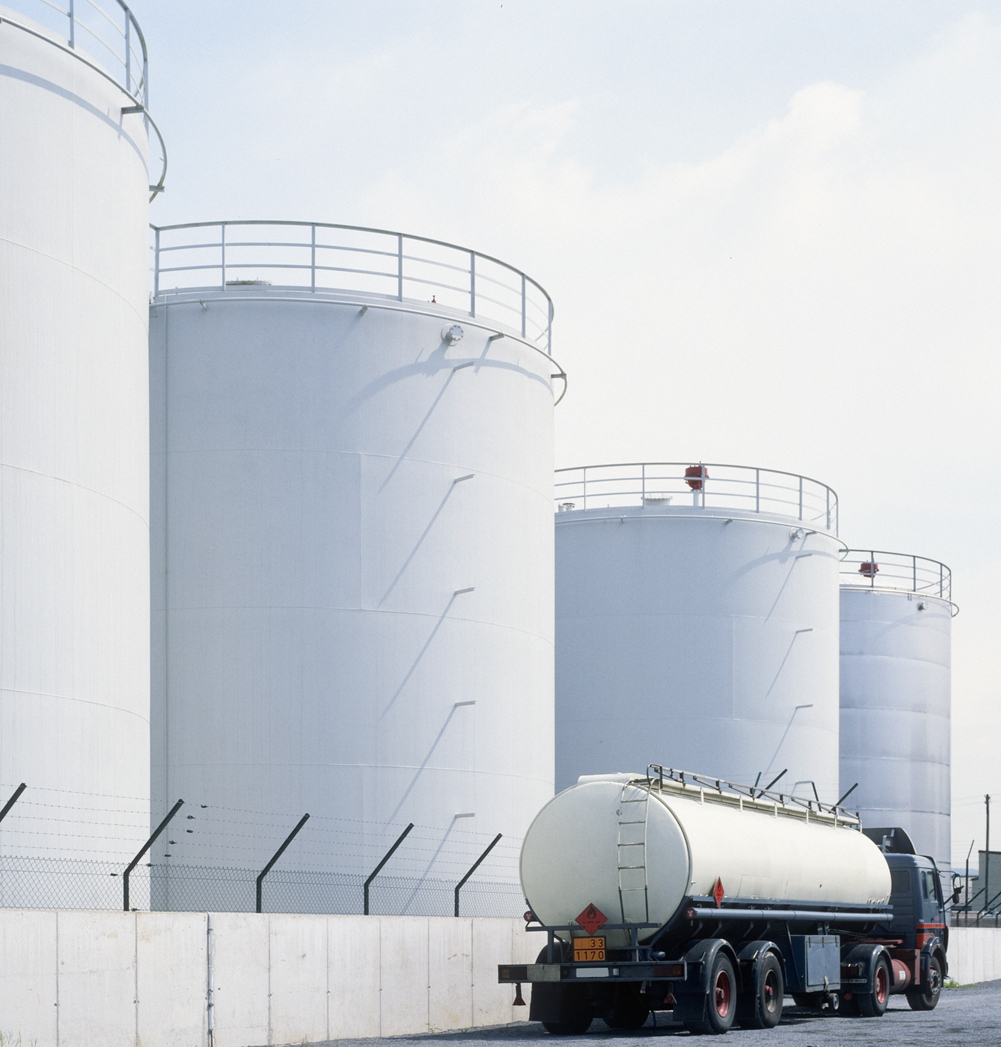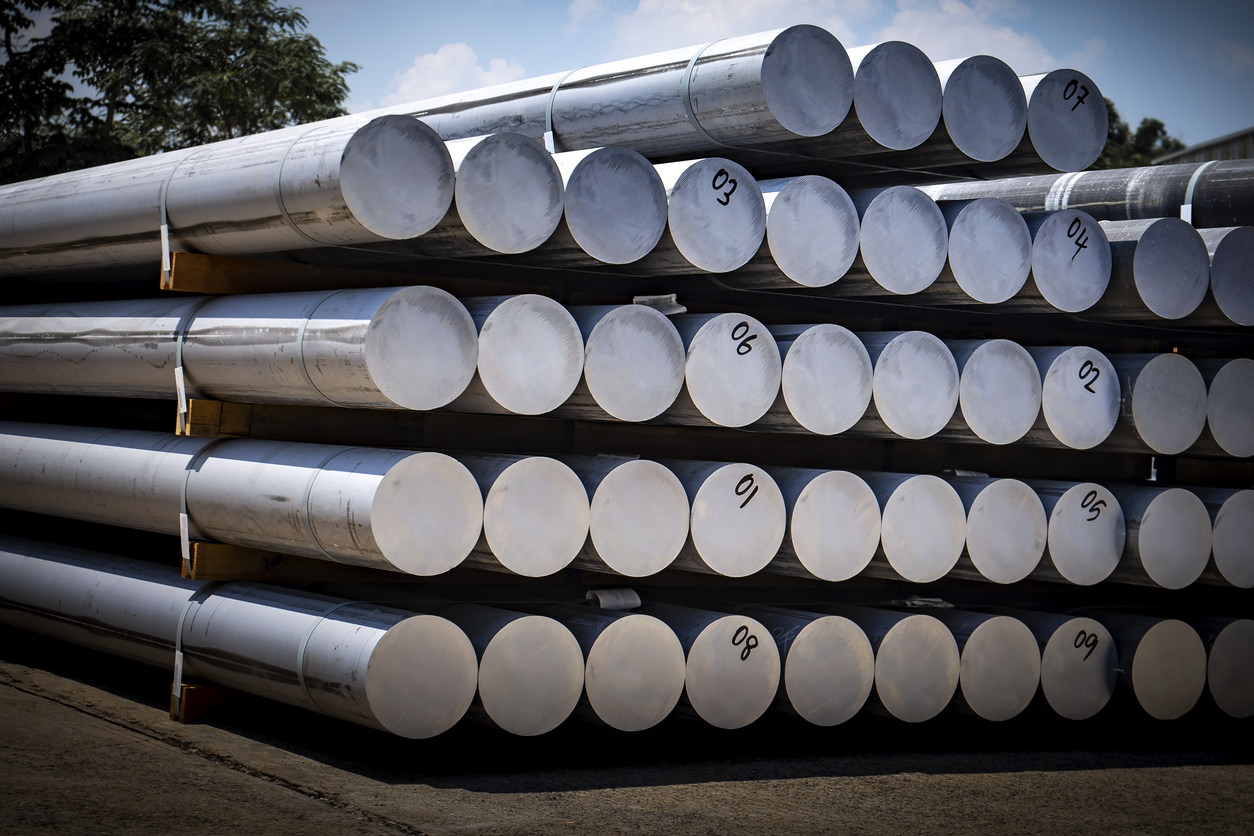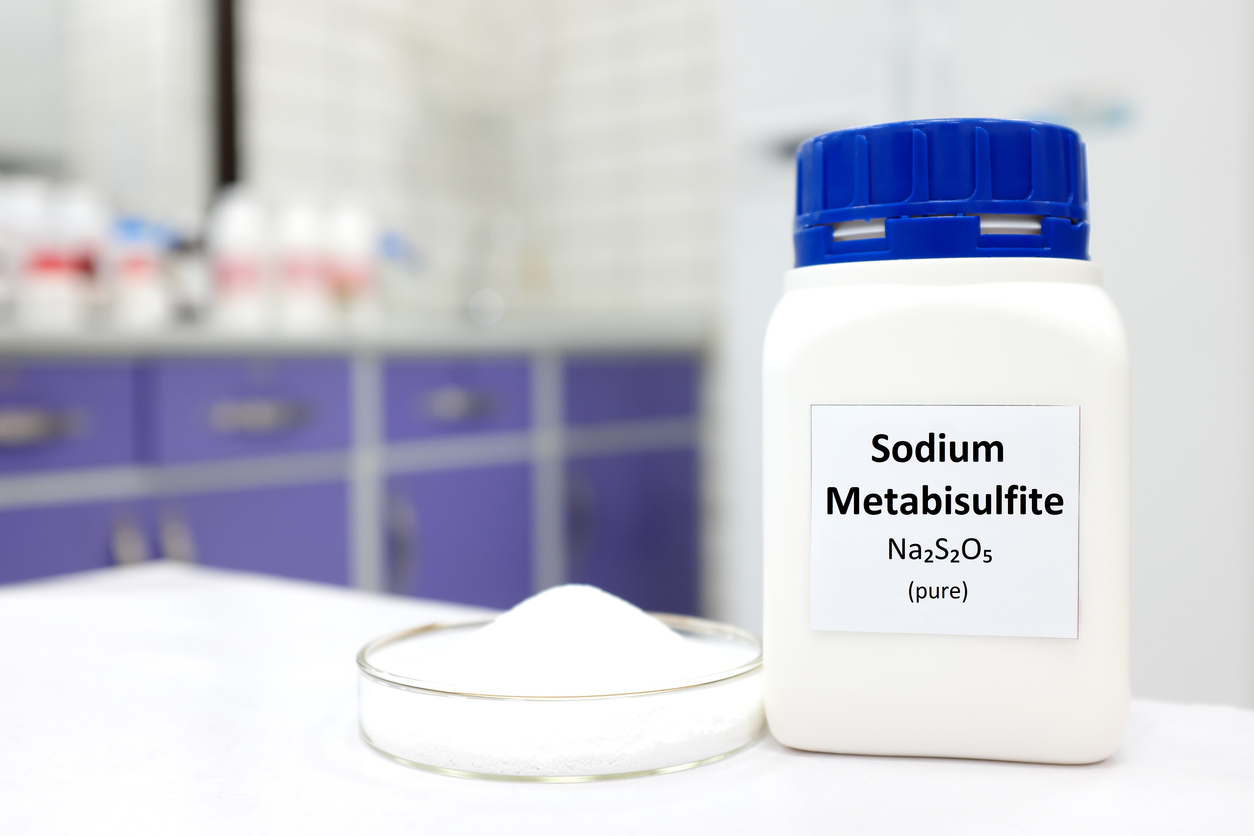Protecting Your Assets: Why Tank and NDT Inspection is Essential in Nigeria
Protecting Your Assets: Why Tank and NDT Inspection is Essential in Nigeria
Welcome to Nigeria, the land of rich culture, breathtaking landscapes, and thriving industries. As you navigate through the bustling streets and witness the nation’s rapid growth, have you ever stopped to think about what keeps this vibrant economy running smoothly? Behind every successful industry lies a crucial element – asset protection. In a country like Nigeria where oil and gas play a pivotal role in fueling progress, ensuring the safety and integrity of tanks and equipment becomes paramount. Join us today as we delve into why Tank and Non-Destructive Testing (NDT) inspections are not just essential but absolutely vital in safeguarding our valuable assets here in Nigeria.
Introduction to Tank and NDT Inspection in Nigeria
Introduction to Tank and NDT Inspection in Nigeria
Nigeria is a country rich in natural resources, including oil and gas. These resources play a vital role in the country’s economy, making it necessary for companies to have storage facilities such as tanks to store these valuable commodities. However, with such high-value assets comes the responsibility of ensuring their safety and integrity.
This is where tank inspection and non-destructive testing (NDT) come into play. Tank inspection involves thorough visual examinations, leak tests, and other types of testing to identify any signs of corrosion, cracks, or other damage that can compromise the structural integrity of the tank. On the other hand, NDT techniques use specialized tools and equipment to detect internal flaws or defects without damaging the tank’s surface.
In Nigeria, proper tank inspection and NDT are crucial due to several factors. One major factor is the harsh environmental conditions that can accelerate corrosion processes. The coastal location of many oil refineries and storage facilities exposes tanks to saltwater and humid air which can lead to metal degradation over time. Moreover, Nigeria also experiences heavy rainfall during certain seasons that can cause flooding around storage facilities leading to potential damage if tanks are not inspected regularly.
Furthermore, regular inspections are essential for compliance with regulatory requirements set by organizations such as Nigerian National Petroleum Corporation (NNPC) and Department of Petroleum Resources (DPR). These regulations mandate regular inspections to ensure safe operations within the industry.
Another important aspect that makes tank inspection and NDT necessary in Nigeria is quality control. Regular inspections allow companies to identify any potential issues early on before they escalate into larger problems that may result in costly repairs or replacements. This helps maintain product quality standards while also preventing accidents or leaks that could be harmful to employees or surrounding communities.
Moreover, proper tank inspection plays a critical role in maintaining business continuity. A well-maintained tank has a longer lifespan compared to one that receives little or no maintenance. This means less downtime and increased productivity for companies, ensuring that operations continue smoothly without unexpected disruptions.
As we can see, tank inspection and NDT are essential in Nigeria for several reasons. They not only ensure the safety of valuable assets but also contribute to regulatory compliance, quality control, and business continuity. In the following sections of this article, we will explore these benefits in more detail and discuss how regular inspections can help protect your assets in Nigeria.
The Importance of Regular Tank and NDT Inspection
Regular tank and NDT (Non-Destructive Testing) inspections are crucial for maintaining the safety, integrity, and efficiency of industrial tanks in Nigeria. These inspections are not only important for complying with regulatory standards but also for ensuring the protection of assets and preventing any potential hazards.
One of the main reasons why regular tank and NDT inspections are essential is to identify and prevent any possible leaks or failures in the tank structure. Tanks used in industries such as oil refineries, chemical plants, and water treatment facilities are subject to harsh environmental conditions, high pressure, and corrosive materials. Over time, these factors can weaken the tank structure, leading to cracks or holes that can result in hazardous leaks. Regular inspections allow for early detection of any deterioration or damage so that necessary repairs can be made before it escalates into a major issue.
Moreover, regular tank and NDT inspections help ensure compliance with industry regulations. In Nigeria, there are specific guidelines set by government agencies such as the Department of Petroleum Resources (DPR) that require industrial tanks to undergo periodic inspection. Failing to comply with these regulations can result in penalties or even shut down operations until proper measures are taken.
Additionally, regular tank and NDT inspections play a crucial role in reducing operational costs. By identifying potential issues at an early stage through thorough inspection techniques like ultrasonic testing or magnetic particle testing, companies can avoid costly repairs or replacements down the line. It also helps prevent unexpected downtime due to equipment failure which could lead to significant financial losses.
Apart from mechanical factors, regular inspections also address safety concerns associated with industrial tanks. Ensuring that all components such as valves, pipes, fittings are functioning correctly reduces the risk of accidents caused by malfunctioning equipment. This is especially critical for storage tanks used for hazardous materials where even minor malfunctions can have severe consequences.
Regular tank and NDT inspections play a vital role in protecting assets while maintaining safety and regulatory compliance in Nigeria. These inspections assist in detecting potential issues, reducing operational costs, and maintaining the overall efficiency of industrial tanks. Companies must prioritize regular inspections to ensure the safety of their employees, communities, and the environment.
– Ensuring Safety and Compliance with Regulations
When it comes to storing hazardous materials, such as petroleum products, in tanks, safety and compliance with regulations is of utmost importance. Failure to adhere to these regulations can result in serious consequences for both the environment and human health. In Nigeria, tank inspection is mandatory by law, and non-destructive testing (NDT) plays a crucial role in ensuring the safety and compliance of these tanks.
The primary purpose of tank inspection is to identify any potential hazards that could lead to leaks or spills. This includes checking for structural integrity issues, corrosion, and cracks that may compromise the tank’s ability to contain its contents. Regular inspections are necessary as tanks are constantly exposed to harsh environmental conditions, which can accelerate wear and tear.
In Nigeria specifically, there are strict regulations set by government agencies such as the Department of Petroleum Resources (DPR) and the National Oil Spill Detection and Response Agency (NOSDRA). These agencies have established guidelines for tank design, construction, installation, operation, maintenance, and decommissioning. It is essential for all companies operating storage tanks in Nigeria to comply with these regulations to ensure public safety.
One way companies can meet these regulatory requirements is through NDT methods. NDT techniques involve evaluating materials without causing any damage or permanently altering them. This makes it an ideal method for inspecting tanks without interrupting operations. Some common NDT techniques used in tank inspections include magnetic particle testing (MPT), ultrasonic testing (UT), radiographic testing (RT), liquid penetrant testing (LPT), visual inspection (VT), and eddy current testing (ECT).
Each technique has its advantages depending on the type of material being inspected and the specific defect being detected. For example, MPT is used on ferromagnetic materials while LPT detects surface defects such as cracks or porosity. UT uses high-frequency sound waves to detect internal flaws in metal components while RT uses X-rays or gamma rays to identify cracks and corrosion.
In addition to ensuring compliance with regulations, NDT methods also provide accurate and reliable results, allowing for timely maintenance and repairs. This not only prevents potential disasters but also saves companies from costly downtime and financial losses.
Safety and compliance with regulations should be a top priority when it comes to tank inspection in Nigeria. Adhering to these regulations not only protects the environment and human health but also ensures the efficient operation of storage tanks. By utilizing NDT techniques, companies can meet these regulatory requirements while maintaining the integrity of their assets.
– Preventing Costly Damage and Losses
Preventing Costly Damage and Losses
The purpose of regular tank and NDT inspection is not only to ensure the safety and compliance of your assets, but also to prevent costly damages and losses. In Nigeria, where industries such as oil and gas, manufacturing, and transportation heavily rely on storage tanks for their operations, the consequences of neglecting inspections can be catastrophic.
One of the main reasons why tank and NDT inspection is essential in preventing costly damage is early detection. Without proper monitoring and inspection, small issues such as corrosion or cracks may go unnoticed until they become major problems that require extensive repairs or even replacement. This can result in significant financial losses for a company, as well as potential disruptions in production or operations.
Regular inspections also help identify any potential hazards that could pose a threat to the safety of workers or the environment. For example, tanks used for storing hazardous materials must be inspected regularly to ensure there are no leaks or structural weaknesses that could lead to spills or accidents. By detecting these hazards early on through inspections, companies can take necessary measures to mitigate risks before they escalate into costly disasters.
Moreover, tank and NDT inspection can save businesses from legal troubles. In Nigeria, there are strict regulations governing the maintenance of storage tanks used for industrial purposes. Failure to comply with these regulations can result in hefty fines or even shut down operations. By conducting regular inspections and keeping accurate records of them, companies can demonstrate their commitment to adhering to safety standards set by regulatory bodies.
Another aspect that makes tank and NDT inspection crucial in preventing costly damage is its role in maintaining asset integrity. Regular inspections allow companies to monitor the condition of their tanks over time and address any deterioration before it affects their structural integrity. This helps prolong the lifespan of assets significantly while avoiding expensive replacements.
Preventive maintenance through regular tank and NDT inspection is vital for protecting your assets from costly damages and losses in Nigeria. It not only ensures the safety and compliance of your assets but also saves businesses from potential legal troubles and maintains asset integrity. Therefore, investing in regular inspections is a small price to pay compared to the potential consequences of neglecting them.
– Maintaining Equipment Efficiency and Longevity
Maintaining Equipment Efficiency and Longevity
In addition to ensuring the safety and regulatory compliance of your storage tanks, regular tank and NDT inspections also play a critical role in maintaining the efficiency and longevity of your equipment. This is especially important in Nigeria, where harsh climate conditions and corrosive environments can significantly impact the lifespan of storage tanks.
One of the most common issues that arise from neglected tank maintenance is corrosion. When left unchecked, corrosion can lead to structural weaknesses in the tank, causing leaks or even catastrophic failures. Regular tank inspections can identify early signs of corrosion, allowing for timely repairs or replacements before major damage occurs.
Furthermore, tank inspections also help to detect any potential mechanical failures or damages that could compromise the integrity of your equipment. By identifying these issues early on, you can take preventative measures such as repairing damaged parts or conducting necessary maintenance to ensure that your tanks are functioning at their optimal level.
Maintaining proper coating systems is another crucial aspect of protecting storage tanks from corrosion and prolonging their lifespan. Through regular NDT inspections, any deficiencies in coating systems can be identified, allowing for timely repairs or replacements. This not only helps to prevent further deterioration but also extends the life of your tanks by providing an additional layer of protection against external elements.
Proper maintenance through regular inspections not only helps to prevent costly repairs but also improves efficiency and reduces downtime. For example, a poorly maintained tank may have buildup deposits or sediment accumulation inside which can reduce its storage capacity over time. Regular cleaning and inspection allow for timely removal of these deposits, ensuring maximum storage capacity and avoiding any production delays that may occur due to inadequate space.
Additionally, with advancements in technology comes improved methods for detecting potential issues within a tank without having to shut down operations completely. Ultrasonic thickness testing (UTT) is one such method used during NDT inspections that allows for accurate measurements of metal loss due to corrosion while minimizing disruption to operations.
Regular tank and NDT inspections are essential for maintaining the efficiency and longevity of your equipment. By identifying potential issues early on, you can prevent costly repairs, improve efficiency, and ultimately protect your assets in Nigeria. It is crucial to prioritize these inspections as part of your overall maintenance plan to ensure the safety and longevity of your storage tanks.
Understanding Wigmore Trading’s Tank and NDT Inspection Services
Wigmore Trading is a leading provider of tank and non-destructive testing (NDT) inspection services in Nigeria. With over 20 years of experience, our team of highly qualified engineers and technicians are dedicated to ensuring the safety and integrity of your assets.
Understanding the importance of tank and NDT inspections is crucial for any business operating in Nigeria. These services not only ensure regulatory compliance but also protect your assets from damage, malfunctions, and costly downtime.
Tank Inspection:
As per Nigerian regulations, all above-ground storage tanks must undergo regular inspections to detect any potential issues that may compromise their structural integrity or cause environmental hazards. Our team at Wigmore Trading follows internationally recognized standards such as API 653 and STI SP001 to conduct thorough inspections on various types of tanks including steel, fiberglass, concrete, and polyethylene.
During a tank inspection, our experts carefully examine every aspect of the tank such as its foundation, shell, roof structure, nozzles, fittings, valves, ladders and platforms. We use advanced techniques such as ultrasonic thickness testing to measure the wall thickness of the tank which helps identify corrosion or other defects that could lead to leaks or ruptures.
Our team also conducts visual inspections using state-of-the-art equipment such as drones with high-definition cameras to inspect hard-to-reach areas without disrupting operations. This allows us to provide accurate reports with detailed recommendations for any necessary repairs or maintenance.
NDT Inspection:
Non-Destructive Testing (NDT) is a critical component of asset protection as it helps identify any flaws or defects in materials without causing damage. At Wigmore Trading, we offer a wide range of NDT techniques including radiography testing (RT), magnetic particle testing (MPT), liquid penetrant testing (LPT), ultrasonic testing (UT) and visual inspection (VT).
Our experienced technicians use these methods to assess the condition of pipelines, storage tanks,
structural components and other critical assets. This enables us to detect any flaws such as cracks, corrosion, or material degradation that may affect the structural integrity of your assets.
By conducting regular tank and NDT inspections, businesses can avoid costly repairs, unplanned shutdowns and potential catastrophic incidents. It also ensures compliance with local regulations and industry standards, which is crucial for maintaining a good reputation in the market.
At Wigmore Trading, we understand the importance of protecting your assets. That’s why we offer comprehensive tank and NDT inspection services to help you maintain safe and reliable operations while reducing risks and overall maintenance costs. Contact us today to learn more about our services or to schedule an inspection for your facility.
– Experienced Inspectors and Advanced Technology
In order to ensure the safety and integrity of your assets, it is crucial to have experienced inspectors and advanced technology in place for tank and NDT (Non-Destructive Testing) inspections. These two components work hand in hand to provide a thorough and accurate assessment of your assets.
Having experienced inspectors is essential because they possess the knowledge, expertise, and skills needed to properly conduct inspections. They are trained in various inspection techniques such as visual testing, ultrasonic testing, magnetic particle testing, and more. With their years of experience in the industry, they can identify any potential issues or defects that may compromise the structural integrity of your tanks or equipment.
Furthermore, experienced inspectors are aware of industry standards and regulations set by organizations such as the American Petroleum Institute (API) or International Organization for Standardization (ISO). This ensures that your assets are inspected according to international standards, providing peace of mind knowing that your equipment is compliant with safety regulations.
On top of having experienced inspectors, advanced technology plays a critical role in tank and NDT inspections. Gone are the days when inspections were solely done through visual checks or manual measurements. With advancements in technology, there are now various tools and devices that can be used to assist inspectors in detecting flaws or damage within assets.
For instance, digital radiography uses X-rays to create images of internal structures without causing any harm to humans or the environment. This allows for a non-intrusive inspection method that can reveal hidden defects such as corrosion or cracks within tanks or pipelines.
Another example is laser scanning which captures precise measurements of an asset’s dimensions using laser light. This technology enables accurate 3D modeling which helps identify any deformities or changes in shape over time.
By incorporating advanced technology into inspections along with skilled inspectors’ expertise, you can expect a comprehensive evaluation of your assets’ condition. The use of these modern technologies not only increases accuracy but also enhances efficiency by reducing inspection time.
Experienced inspectors and advanced technology are vital components in protecting your assets through tank and NDT inspections. With their combined efforts, you can trust that your equipment is thoroughly evaluated and meets safety standards, ensuring the longevity of your assets.
– Comprehensive Inspection Processes
Comprehensive Inspection Processes:
In order to ensure the safety and reliability of tanks, as well as prevent any potential damage or loss of assets, it is essential to have a comprehensive inspection process in place. This involves conducting regular inspections using various non-destructive testing (NDT) techniques, as well as thorough physical examinations.
One of the most commonly used NDT methods for tank inspection is ultrasonic testing (UT). This technique uses high-frequency sound waves to detect any defects or abnormalities in the material of the tank walls. UT can also be used to measure thickness and identify corrosion or erosion on metal surfaces.
Another important NDT technique for tank inspection is magnetic particle testing (MPT), which is particularly useful for detecting surface cracks and other flaws that could lead to leakage. MPT works by applying a magnetic field to the surface being inspected and then introducing iron particles onto the surface. These particles will gather at any areas where there are surface irregularities, indicating potential weaknesses that need further examination.
Visual inspections are also a crucial part of comprehensive tank inspections. This involves physically examining every part of the tank, both externally and internally, for any visible signs of damage or deterioration. This includes checking for cracks, leaks, corrosion, and other structural issues.
Other NDT methods such as radiography (RT) and liquid penetrant testing (LPT) may also be used depending on the specific needs of each tank. RT uses X-rays or gamma rays to create images that can reveal internal defects in a tank’s structure, while LPT involves applying a dye solution to surfaces that can highlight any cracks or imperfections.
Apart from NDT techniques, thorough documentation is an integral part of comprehensive tank inspections. This includes keeping records of all previous inspections, test results, repairs made, and maintenance schedules. It allows operators to track the condition of their tanks over time and make informed decisions about when maintenance or repairs are needed.
Additionally, it is essential to have qualified and trained personnel conducting these inspections. NDT technicians and engineers should be certified and have a thorough understanding of the different inspection methods and techniques.
Having a comprehensive inspection process that includes regular NDT testing and thorough physical examinations is crucial for protecting your assets in Nigeria. It not only ensures the safety and reliability of your tanks but also helps identify potential issues before they become major problems, saving you time, money, and potentially even lives.
– Customized Solutions for Different Industries
In today’s rapidly evolving business landscape, it is essential for companies to prioritize asset protection in order to ensure their long-term success and sustainability. This is especially important in industries such as oil and gas, manufacturing, and transportation where large-scale assets like tanks are critical components of day-to-day operations.
However, the specific needs and challenges related to asset protection may vary across different industries. This is why it is crucial for companies to invest in customized solutions that cater to their unique requirements. In this section, we will discuss how tank and NDT inspection services can be tailored to meet the specific needs of different industries in Nigeria.
Oil and Gas Industry:
The oil and gas industry in Nigeria is highly regulated due to its economic significance and potential environmental risks. Therefore, tank inspections must adhere to strict standards set by regulatory bodies such as the Department of Petroleum Resources (DPR) and Nigerian National Petroleum Corporation (NNPC).
Customized solutions for tank inspections in this industry involve a thorough understanding of these regulations along with detailed knowledge about various types of tanks used for storage, transportation, or production purposes. Specialized equipment like ultrasonic thickness gauges are utilized to assess the integrity of tanks made from different materials.
Manufacturing Industry:
The manufacturing industry also relies heavily on tanks for storing raw materials, intermediate products, or finished goods. These tanks are often subjected to harsh environmental conditions leading to corrosion or wear-and-tear over time.
To ensure maximum efficiency and longevity of these assets, customized tank inspection services focus on identifying any signs of damage or defects that could lead to leakage or failure. Visual inspections combined with advanced techniques like magnetic particle testing help detect cracks or other structural flaws that may not be visible externally.
Transportation Industry:
Tanks used for transporting hazardous materials via roadways or railways need frequent inspections due to safety concerns. Customized solutions specifically designed for the transportation industry involve comprehensive checks on all aspects such as valves, seals, and pressure gauges to ensure that tanks are functioning properly and meet all safety requirements.
Customized solutions for tank and NDT inspection play a critical role in protecting assets across various industries. By tailoring these services to the specific needs of each industry, companies can mitigate risks, ensure regulatory compliance, and maintain efficient operations.
Common Types of Tanks that Require Inspection
In Nigeria, tanks are used in various industries and play a crucial role in storing and transporting essential materials such as oil, water, chemicals, and gases. These tanks are subject to wear and tear over time, making regular inspection necessary to ensure their structural integrity and prevent any potential hazards.
There are several common types of tanks that require inspection for safety compliance. These include:
1) Oil Storage Tanks: Nigeria is one of the top oil-producing countries in Africa, making oil storage tanks a critical asset for the country’s economy. These tanks hold large quantities of crude oil or refined petroleum products and are subject to corrosion due to contact with the stored material. Regular inspections can detect any signs of corrosion or other structural issues that may lead to leakage or rupture.
2) Water Storage Tanks: With its rapidly growing population, access to clean drinking water is a significant concern in Nigeria. Water storage tanks are used across the country to store potable water for domestic use. It is vital to inspect these tanks regularly for cracks, leaks, or contamination from external sources such as bacteria or algae growth.
3) Chemical Storage Tanks: Industries such as manufacturing, agriculture, and mining rely heavily on chemical storage tanks for storing hazardous substances safely. Due to the nature of these materials, it is essential to inspect these tanks regularly for leakage or deterioration of their protective coatings.
4) Gas Storage Tanks: The use of liquefied petroleum gas (LPG) has increased significantly in Nigeria due to its cost-effectiveness compared to traditional fuels like kerosene or firewood. LPG storage tanks require frequent inspections as they can be prone to leaks due to high pressure or faulty valves.
5) Bulk Fuel Storage Tanks: In addition to oil storage tanks mentioned earlier, there are also bulk fuel storage facilities that hold large quantities of gasoline or diesel fuel. These facilities must adhere strictly to safety regulations and undergo regular testing and inspection for any potential risks associated with leakage or contamination.
Regular inspection of these tanks is critical not only for safety reasons but also to comply with government regulations. Neglecting to inspect and maintain these assets can result in significant financial losses, environmental damage, and even loss of life in extreme cases.
It is essential for companies and industries in Nigeria to prioritize tank inspections as part of their asset management strategies. This will ensure the safe operation of their facilities, protect the environment, and prevent any potential hazards that may arise from tank malfunctions.








Comments are closed.